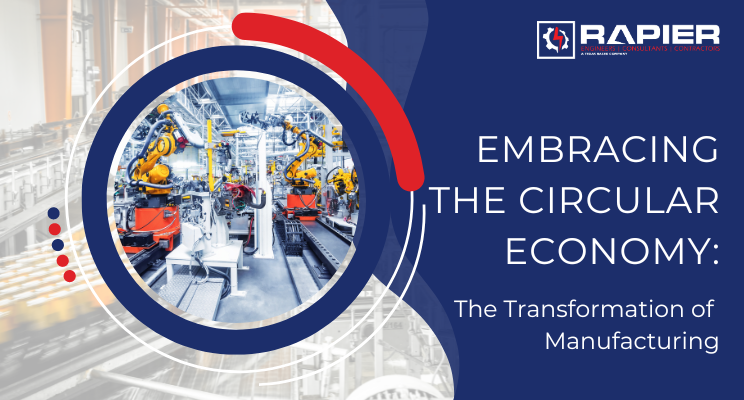Gone are the days of the traditional “take-make-dispose” model, which inevitably led to resource depletion and mounting waste. Instead, the Circular Economy approach is gaining traction, encouraging manufacturers to rethink their processes and adopt sustainable practices that benefit both businesses and the planet. Instead, this places emphasis on sustainability, waste reduction, and the creation of a closed-loop system by prioritizing practices that promote the reuse, recycling, and extended use of materials and products.
The Need for a Circular Economy
In the face of growing environmental concerns and the depletion of finite resources, the Circular Economy offers a compelling solution for manufacturers to adopt more responsible and eco-conscious strategies. By rethinking traditional production methods, manufacturers can minimize their ecological footprint while simultaneously enhancing their long-term economic viability.
Designing for Disassembly and Reuse
Central to the Circular Economy concept in is the design of products with easy disassembly in mind. This design philosophy facilitates the separation of various components, ensuring that valuable materials can be recovered and reused when the product reaches the end of its life. Through this approach, manufacturers can minimize waste and promote a sustainable resource management system.
Implementing Robust Recycling Programs
Additionally, the establishment of robust recycling programs is crucial to the successful implementation of circular practices. Manufacturers are now actively collaborating with stakeholders to create efficient recycling infrastructures that facilitate the recovery of valuable materials from discarded products. By closing the loop through recycling, businesses can ensure that materials remain in circulation, reducing the need for virgin resources and lowering overall environmental impact.
Reevaluating Business Models for Sustainability
Furthermore, a shift towards circular practices has prompted manufacturers to reconsider their business models. Companies are exploring new strategies that prioritize product life extension, such as offering repair services, refurbishments, and upgrades. This not only prolongs the lifespan of products but also fosters a more sustainable consumption pattern among consumers.
Benefits of Embracing the Circular Economy
The benefits of embracing the Circular Economy in manufacturing extend beyond environmental stewardship. Companies that adopt sustainable practices often enjoy enhanced brand reputation, as consumers increasingly favor environmentally conscious businesses. This, in turn, can lead to greater customer loyalty and a competitive edge in the market. Furthermore, investors are increasingly drawn to companies with a strong commitment to sustainability, opening up new avenues for funding and growth.
As we collectively journey towards a more sustainable future, the principles of the Circular Economy serve as a guiding light for the manufacturing industry. By reimagining how we produce, consume, and dispose of products, we can foster a harmonious relationship between industry and the environment. Let us unite in this endeavor, creating a legacy of responsible stewardship for future generations to come.


